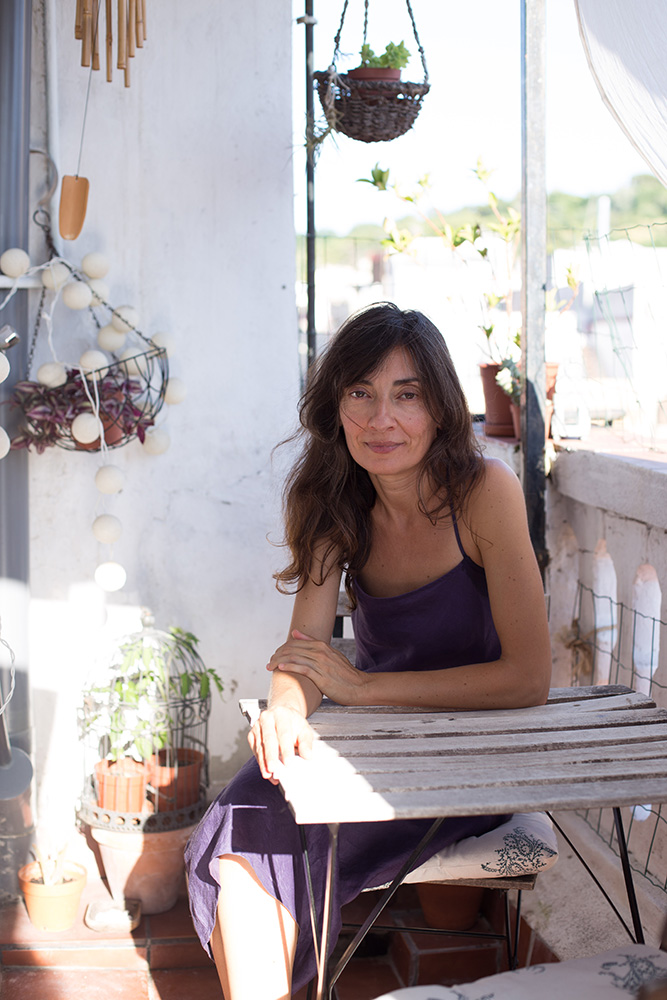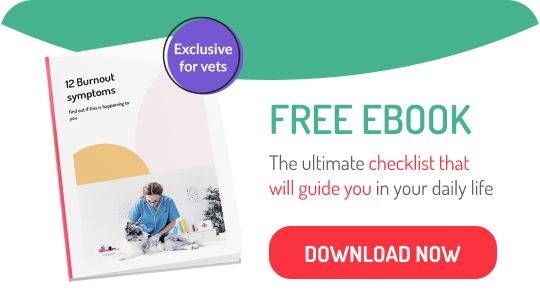“We are always asked what we want to be, but not how we want to live our life.”
Being a veterinarian was always my goal, and I graduated in Veterinary Medicine at the Università degli Studi di Sassari. I work as an artistic consultant for signature brands and manage my blog on spaces we inhabit and their link to wellness. It’s all good; we just have to find our way to be well.
Why did you study Veterinary Medicine?
The reason is very straightforward; I wanted to heal animals and alleviate their suffering. When I was a child, my grandfather used to go hunting, mainly birds. If the gunshot did not kill them or if they had superficial wounds, on their wings, for instance, he would bring them home, and my father and I would cure them. My grandfather, strangely enough, being a hunter, also loved animals. He taught me so many things I know about animals.
Do you believe that the high level of expectations created by vocation in this profession influences the unexpected reality you encounter?
Without a doubt. The veterinary profession is wildly romanticized in the collective imagination because it involves animals. If someone asks you, “what do you do in life?” and you answer, “I’m a veterinarian,” they reply, “Oh, how nice” (and they have no idea what that means).
However, if your vocation leads you to choose this profession (go for it!), your everyday reality turns out to be different from what you imagined. This happens because no one has asked us how we want to live our lives; when we are growing up, everyone asks us what we want to be. Some want to be hairdressers, others doctors or lawyers. However, no one knows how your life will be if you choose one profession or another. When you choose a profession, especially if it is vocational, you are not choosing your everyday reality.
Why did you decide to stop building a profession you loved and were so good at?
The first reason was a constant disappointment due to the general lack of respect for the veterinary profession. Even colleagues and clinic owners sometimes disrespect these professionals, allowing terrible working conditions, poor pay, inhumane hours, poor management, etc.
The second reason was a brutal emotional toll at all levels. High sensibility profiles, among which we often find many veterinarians, find it really hard to bear.
The third reason was the loneliness and lack of understanding you feel when society does not comprehend the reason for your stress and your decisions.
Why do many veterinarians and assistants continue to work despite feeling this dissatisfaction?
I have talked to many dissatisfied colleagues, and they always tell me: “What else can I do?” It is extraordinary because it seems that complaining and labor dissatisfaction are now standard, and you need to accept it if you want to work in this sector.
This is a profession that requires many years of hard study. This does not allow you to pursue other interests, other activities; you have no spare time. Furthermore, you must continue studying and training. This means you end up being part of a tiny universe. And it is challenging to leave that universe behind. On the other hand, after having devoted so many resources, so much effort, and time, it seems inconceivable to think about abandoning it.
How would you explain the process that took you from thinking of abandoning your profession to finally doing it?
I accepted I was incredibly dissatisfied and constantly frustrated, and my life revolved around those feelings. I realized these were not isolated moments and that no vacation would solve this. It was crucial because I became aware of the situation and understood I was not well.
This was followed by a period of great suffering because I felt guilty for not having held on, for having wasted so many years… I felt like a failure for not doing my duty and turning my back on the profession.
What was the last straw in your case?
One day, while I was getting dressed, I felt discomfort and tightness in my chest; I wasn’t breathing well, I had tachycardia and thought something severe was happening to me. I realized I was suffering from an anxiety attack. I said to myself: “Enough, I won’t put up with this any longer.”
¿When did you become at peace with yourself?
I abandoned the profession four years ago. The first two and a half years were the toughest, but gradually I realized I had taken the right decision. I was at peace with myself when I stopped feeling guilty. I realized I had the right to feel relieved.
Have you drawn any conclusions from these years of reflection?
This is something linked to generations like ours and our parents’. They devoted their entire lives to their profession, and this is what they have passed on to us. Our generation has experienced a change, and when we had our careers on track, we realized that the labor market had changed and permanent jobs did not exist. The rules of the game changed while we were playing.
New generations are more intelligent and understand these recent trends, but our generation has had to adapt. I have met younger professionals who started to work, saw a reality filled with hours on duty, unbearable workloads, and discussions, and decided to change their approach. They used their studies to leave the clinic behind and focus on other branches.
How should someone suffering from burnout approach the veterinary profession?
Some people find a way to continue working as veterinarians but differently. It is essential to avoid burning out completely, which happened to me. You have to put a stop to it and find a more human and more compatible way for each of us. If you are not happy where you are, you can always change. And instead of working in a referral hospital, you can work in a small clinic. There are different options; the important thing is to feel well while doing it.
What other activities have replaced the veterinary profession in your life?
All kinds of creative activities related to developing my consultancy project for brands: photography, styling, communication, etc. For someone used to a rigorous and scientific education, I have realized I can carry out activities without order or rules. This is something extraordinary for me because I can work on my project simultaneously with coherence and freedom .
What advantages do you have from having trained as a veterinarian?
Developing an analytical frame of mind has allowed me to see things clearly and establish some rules. I believe that many creative minds get lost along the way because of a lack of precision. People with a more analytical mind follow orders and protocols. Even if they find it hard to let go initially, they know how to bring things into perspective and define the path to be followed.
If twenty-year-old Eva had imagined herself in your current professional situation, what would she have thought?
Pure madness! I wouldn’t have believed it. It was unthinkable for me because I knew what I wanted to be, which was the only thing I wanted to do in life.
What advice would you give to someone going through a similar process to yours?
First, I would tell them to take the time to develop something they love. It could be ceramics, yoga, drawing, trekking, learning a language, or any other activity that makes them feel well and helps them. People with a lot of responsibility will disconnect even more if they do anything related to their bodies and hands.
Then, I would tell them to listen to their bodies. We are sometimes tired physically, but our mind pulls our body to keep going. However, when we start listening to our body and connecting with it, we realize that our mind is lying, but our body speaks a clear language. When we listen to our bodies, we cannot ignore other discomforts.
Are you happier now?
I think you can be happy at times. I don’t think anyone can be happy all the time. I feel well now and have many moments of happiness. Now I can stop and enjoy the beauty in life. I would say that I am definitely happier now.









